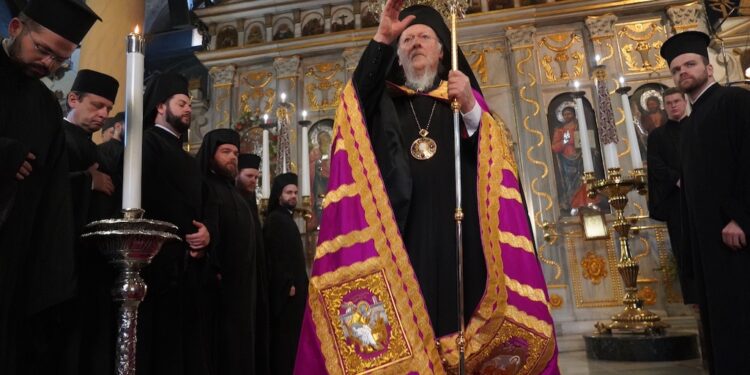“War is always destructive. To remain silent in the face of its cruelty is a disgrace! It is our duty and mission to defend and promote peace. ‘Blessed are the peacemakers’ (Matthew 5:9).”
With these powerful words, Ecumenical Patriarch Bartholomew began his brief address at the International Summit for Peace in Ukraine. The summit, attended by leaders and representatives from around 100 states and international organizations, took place on June 15-16, 2024, at the Bürgenstock resort in the Canton of Nidwalden, Switzerland.
The Ecumenical Patriarch emphasized the importance and value of dialogue, describing it as the driving force behind the conference. He also addressed the granting of Autocephalous status to the Orthodox Church of Ukraine, asserting that the Ecumenical Patriarchate acted in response to “the pastoral needs of the Orthodox faithful in Ukraine,” because, he added, “we firmly believe that Orthodox Christians in Ukraine are entitled to have their own ecclesiastical voice.”
Concluding his address, Patriarch Bartholomew stated: “We are here, all of us, to support a just and lasting peace in a sovereign Ukraine. May God rest all those who have tragically lost their lives and give strength to all those who defend peace.”
During the summit, the Ecumenical Patriarch had the opportunity to meet and converse with numerous leaders, including Ukrainian President Volodymyr Zelensky, French President Emmanuel Macron, Georgian President Salome Zourabichvili, Greek Prime Minister Kyriakos Mitsotakis, Vatican Prime Minister Cardinal Pietro Parolin, Turkish Foreign Minister Hakan Fidan, and other dignitaries. He also met with the President of the Dominican Republic, Luis Abinader, and the President of Fiji, Wiliame Katonivere, expressing his gratitude for their protection of the small Orthodox missionary community in Fiji.
Late on Sunday, June 16, the Ecumenical Patriarch returned from Zurich to Constantinople via Turkish Airlines, where he was welcomed by Commissioner Elder Metropolitan Apostolos of Derkoi and Grand Archdeacon Alexander.
Translated by: Kosntantinos Menyktas

